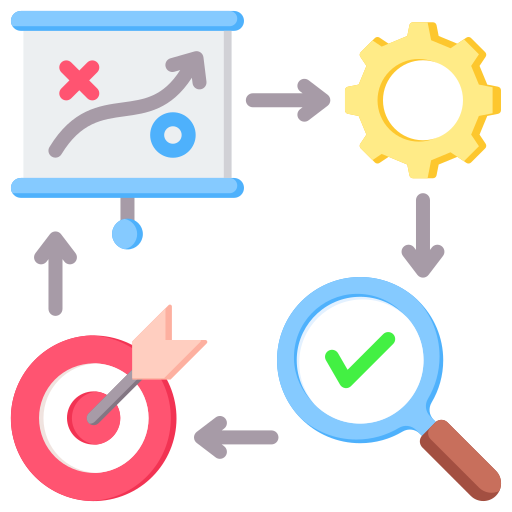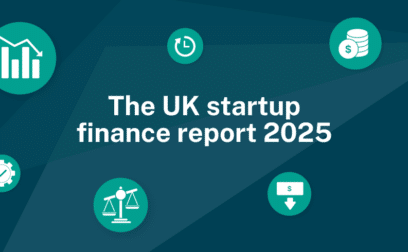TABLE OF CONTENTS
Not sure if your business qualifies? Or already claiming but looking for better service and fairer pricing? You should be working with one of the most active and trusted providers in the market – supporting thousands of growing businesses with R&D and beyond.
At Swoop, we help early-stage and growing companies navigate HMRC’s changing R&D rules. We only proceed if your activity stands up to scrutiny, and we stay with you every step of the way.

Those making their first R&D claim, who want expert guidance as they scale

Those who have claimed before but want better value, less admin, and broader support
We make claiming simple, strategic, and tailored to your business.

Our fees reflect the size and complexity of your claim, how responsive you are, and whether your work is part of a single project or an ongoing stream of innovation. As we get to know your business, your fees typically come down. We’re focused on long-term value, not one-off wins.


Around 20% of R&D claims are now reviewed by HMRC. With Swoop, that figure is under 10%. If your claim is selected, we manage the process and provide full support throughout, including exploring short-term funding solutions if your cashflow is at risk.

If you’re claiming for the first time, we offer a free initial review. Our team will assess your work just as HMRC would and give you a clear answer before you invest time.

Some lenders offer loans secured against your future R&D claim, but these can come with higher interest rates and hidden fees. At Swoop, we work with over 150 funding providers, so rather than settling for one option, our team will search the market to find the most suitable and cost-effective solution for your business.
Think you could be eligible for R&D tax credits? Use our simple calculator to see how much you could receive to offset your tax liability, or even as a cash refund.
Your details
This calculator and the figures displayed are for illustrative purposes only. Actual eligible claim amounts may differ depending on a number of factors.
Your results
Total enhanced cost
£-
Eligible for
£-
Your company is eligible for £- which you can use to offset your tax liability and/or carry forward the loss to the next financial year.
Your company is eligible for a cash refund of £-. Let Swoop help you get these funds as quickly as possible.
Many businesses who already claim R&D tax credits move to Swoop because:

As your provider gets to know your business, their costs should go down – not stay the same. One client had paid 20% on five previous claims. After switching to Swoop, we reduced their rate to 14%, saving them 6% per claim and an estimated £22,000 over the remaining three years.

We handle the process from end to end. You won’t be asked to write your own technical narrative, and where possible, we’ll work directly with your accountant to keep things moving smoothly.

Swoop supports the full funding journey – from tax credits to grants, equity, and working capital – ensuring your business growth is backed by the right mix of funding at every stage.

We are regulated by the Financial Conduct Authority. That means if something goes wrong, you’re covered by professional indemnity insurance. Inquiry support is also included in your contract so if HMRC asks questions, you’re never left on your own.

We’re happy to review your past claims at no cost and highlight risks, savings, or missed opportunities.
We work with companies in:

Software and AI

Engineering and manufacturing

Food science and
green tech

Specialist services and product development
If you’re solving technical problems, developing new tools, or improving systems, we can help present your work in the way HMRC expects to see.
We also keep you updated on policy changes, so you’re not caught off guard.
Even if you’re unsure, we’ll give you a clear, honest assessment before anything moves forward.
Answer a few short questions and our team will review your eligibility.

The Swoop platform has over 500 business grant options for UK SMEs of different sizes and sectors – check your eligibility and apply quickly and easily.
UK R&D tax credits are not taxable income, but for RDEC claims, the credit is classed as taxable income.
No, an LLP cannot directly apply for R&D tax credits as an LLP is not subject to corporation tax.
No, sole traders do not pay UK corporation tax and are therefore not able to claim R&D tax credits.
Your business must meet certain additional criteria in order to apply to receive R&D tax credits; for example, it must be a registered limited company and subject to corporation tax in the UK.
If you’re a startup, and you’re eligible, you’ll be able to claim R&D tax credits.
Yes, you can claim R&D tax credits if you’re a loss-making business. A loss-making SME can claim back up to 33p in every £1 of qualifying expenditure and surrender the loss for cash tax credit at a rate of 14.5%.
The exact figure you are entitled to depends on additional factors, for example whether your business is profitable, loss making or breaking even and how much corporation tax you pay. If your business is profitable, you could claim up to 25% of your R&D expenditure, while if you are breaking even or making a loss that figure is likely to be 15-33%.
Because of the generosity of the SME R&D tax credit scheme, it is considered to be notified state aid. This means you cannot claim SME R&D tax relief on projects that have been funded by a notified state aid grant.
However, RDEC is not considered state aid, so you may still be able to claim tax relief this way if your project was funded by a notified state aid grant.
No, R&D tax credits are classed as notified state aid, not de minimis.
De minimis aid is defined as a grant of less than €200,000 over a three-year period and is not as generous as notified state aid. There is no requirement for the provider to make a specific notification to the European Commission. However, if a company has received de minimis aid, it cannot claim SME R&D tax credits for the proportion of the project which has been funded by the grant.
R&D tax credits were introduced by the UK government in 2000 for SMEs and in 2002 for large companies.
As of April 2023, and first announced in the 2022 Spring Statement, qualifying expenditure now includes data and cloud computing costs where they have been incurred as part of a qualifying R&D project. Research done in the area of pure mathematics also qualifies for R&D tax relief.
Additionally, there is now increased focus on providing support for R&D activities in the UK, but expenditure on R&D activities outside the UK can continue to qualify for tax relief if there is a material or regulatory requirement for this work to be carried out overseas.
Note that corporation tax also rose from 19% to 25% in April 2023.
R&D tax credits are paid as a reduction in your corporation tax liability (if you’re profitable), a cash credit (if you’re unprofitable) or as a rebate on the tax you’ve already paid. Occasionally, it could be a combination.
If your company has received a grant or subsidy you may still be entitled to R&D tax relief, but you will need to claim via the Research and Development Expenditure (RDEC) scheme.
As with the SME R&D tax credit scheme, this can be claimed against your corporation tax liability or paid as cash. However, your entitlement is likely to be significantly lower, around 12% of your research and development expenditure.
You can usually expect to receive your R&D tax credit repayment within 28 days of submitting your claim.
Similar to business grant advances, R&D advance funding allows you to receive your tax relief much faster than waiting for HMRC to pay out. Read all about R&D advances here.
As the name suggests, the advance notification form is a compulsory form that some companies must submit to HMRC (within six months of their year-end) to declare their intention to make an R&D tax credit claim. Its purpose is simply to let HMRC know a claim is coming.
Related pages
Ready to grow your business?
Join the 110,000+ businesses just like yours getting the Swoop newsletter.
Free. No spam. Opt out whenever you like.



























We work with world class partners to help us support businesses with finance
Kingfisher Way, Silverlink Business Park, Newcastle upon Tyne, NE28 9NX, UK
View in Google MapsAberystwyth Innovation and Enterprise Campus
Gogerddan Campus
Aberystwyth University
Ceredigion
SY23 3EE
Dogpatch Labs, The CHQ Building, Custom House Quay, Dublin, Ireland
View in Google MapsSuite 801, Level 8, 84 Pitt Street, Sydney, NSW 2000, Australia
View in Google Maps43 W 23rd St, New York, NY 10010, United States
View in Google Maps21 Dreyer Street, Cape Town, South Africa, 7708
View in Google Maps
Swoop Finance Limited helps UK firms access business finance by working directly with businesses and their trusted advisors. We act as a credit broker, not a lender, and do not provide loans or finance products ourselves. We introduce applicants to a panel of lenders, equity funds, and grant agencies based on individual circumstances and creditworthiness.
Commission Disclosure: We typically receive a commission from the finance provider (either a fixed fee or a fixed percentage of the amount you receive) upon successful placement. Different providers pay different rates. For certain lenders, we may have influence over the interest rate, which can impact the total amount payable under your agreement.
Regulatory Information:
FCA: Authorised and regulated by the Financial Conduct Authority as a credit broker (FRN: 936513) and registered as an Account Information Services Provider (Ref: 833145).
ICO: Registered with the Information Commissioner’s Office (Ref: ZA600162); registration can be verified at ico.org.uk.
Company Details: Registered in England & Wales with Companies House (No. 11163382). Registered Address: The Stable Yard, Vicarage Road, Stony Stratford, Milton Keynes, MK11 1BN. VAT Number: 300080279.
Terms: All finance and quotes are subject to status, income, and terms and conditions. Applicants must be aged 18 or over. Guarantees and indemnities may be required. Please refer to our terms and conditions and our complaints procedure for further details.
Clever finance tips and the latest news
Delivered to your inbox monthly
Join the 110,000+ businesses just like yours getting the Swoop newsletter. Free. No spam. Opt out whenever you like.
Thanks for requesting a call back
a member of the team will be in touch.




